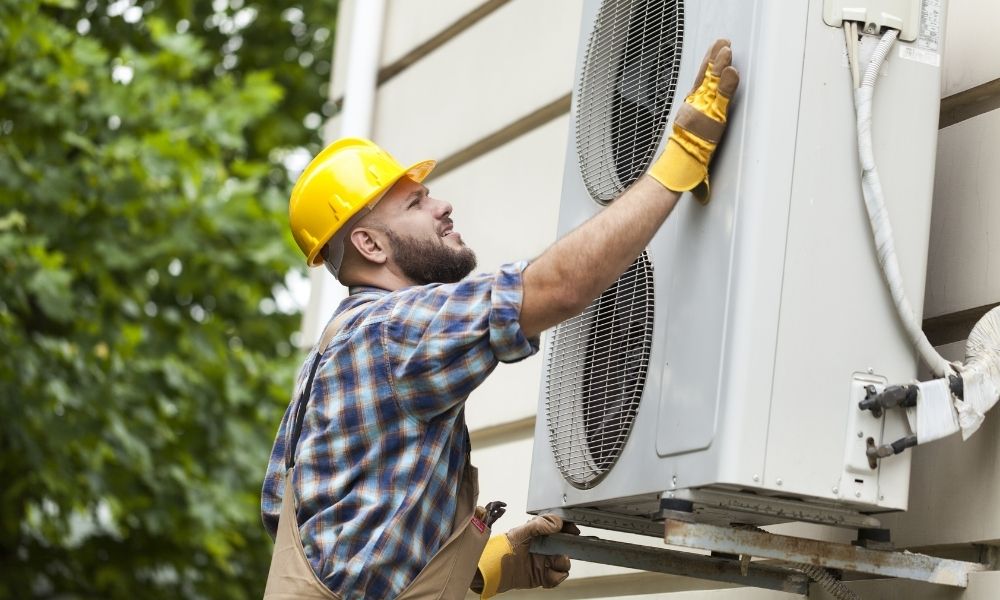The Ultimate Overview to Troubleshooting Common Cooling And Heating and A/c Problems
Property owners typically come across numerous issues, from not enough air conditioning to complicated noises emanating from their systems. Acknowledging when a concern surpasses fundamental treatments can be equally essential.
Typical Cooling And Heating Issues
Identifying usual HVAC issues is critical for maintaining a comfy indoor setting. Home owners typically experience issues that can disrupt heating, air flow, and air conditioning systems.
An additional constant concern is refrigerant leaks, which compromise the effectiveness of air conditioning systems. Inadequate cooling agent levels can cause systems to have a hard time in cooling down spaces, resulting in higher functional prices and potential long-lasting damages. Furthermore, thermostat breakdowns can lead to improper temperature level law, causing discomfort and too much energy use.
Lastly, uncommon noises or odors rising from cooling and heating systems can indicate underlying troubles. As an example, rattling noises might suggest loosened parts, while moldy scents could indicate mold and mildew growth within the air ducts. Dealing with these concerns promptly is important to prevent further damages and make sure optimum system efficiency. Regular upkeep and prompt medical diagnosis of these common a/c issues can considerably boost the reliability and efficiency of heating and cooling down systems, ultimately adding to an extra comfy living atmosphere.

Indications of Air Conditioner Issues
Recognizing the signs of a/c problems is crucial for making certain optimal performance and comfort in your home. One of the most instant signs is insufficient cooling; if your air conditioning system is not giving the expected level of air conditioning, it can symbolize low refrigerant degrees, a stopping working compressor, or clogged filters. In addition, if you notice uncommon noises-- such as grinding, screeching, or rattling-- this might show mechanical issues that call for timely focus.
One more critical sign is a rise in power bills without a corresponding change in use. This inadequacy often indicates underlying concerns, such as dust build-up in the coils or ductwork leakages. If you find unpleasant odors rising from the unit, it might be an indication of mold and mildew growth or electric concerns, both of which need prompt evaluation.
Lastly, constant cycling on and off, recognized as short-cycling, can suggest troubles with the thermostat or an improperly sized unit. By being alert concerning these indicators, you can resolve a/c concerns early, making certain a comfy setting and extending the life of your air conditioning system.
Detailed Troubleshooting
When your air conditioning system begins to underperform, it's vital to damage down the fixing process into workable actions. If the settings are correct, check the air filter; an unclean or stopped up filter can substantially impede airflow and effectiveness.
Next, check out the breaker or fuse box for stumbled breakers or blown merges. If the breaker has stumbled, reset it, yet watch on it; if it trips again, there may be a much deeper electric concern.
Inspect the outside unit for debris, such as fallen leaves or dirt, which can obstruct airflow. Make certain the system is clear and that the fins are not bent.
Preventive Maintenance Tips

Start by organizing professional assessments at the very least annually. Throughout these examinations, service technicians can recognize and attend to possible problems prior to they escalate. Furthermore, replace air filters every 1-3 months to enhance air quality and system effectiveness. Stopped up filters limit air flow, requiring your system useful site to work more difficult.
Keep the outdoor system clear of particles, such as leaves and dust, which can prevent air flow. Trim surrounding greenery to keep a minimum of two feet of clearance (residential hvac company). Examine and cleanse the condensate drain to avoid water damage and mold development
Evaluate insulation around air ducts, ensuring it remains undamaged to avoid power loss. Consider a programmable thermostat to enhance power usage according to your timetable.
Lastly, monitor your system's performance regularly, keeping in mind any unusual sounds or modifications in temperature level. Positive procedures are essential in keeping an effective heating and cooling system, ultimately resulting in lower power bills and improved comfort.
When to Call a Specialist
Knowing when to call a specialist for cooling and heating concerns can save you time, cash, and unnecessary tension. While some small issues may be settled via do it yourself troubleshooting, particular signs show that expert intervention is necessary. If you experience irregular temperatures throughout your home, unusual sounds from your HVAC system, or consistent odors, it is important to seek professional assistance.
Furthermore, if your system stops working to begin or often cycles on and off, these may be symptoms of even more serious underlying problems that call for specialized understanding and tools (air conditioner repair). Refrigerant leaks, electric breakdowns, or issues with the compressor can complicate repair services and may pose safety threats
One more important aspect is the age of your system. If your cooling and heating device mores than 10 years old and shows repetitive concerns, seeking advice from a professional for a comprehensive assessment can aid establish whether fixing or substitute is extra cost-efficient. If you do not have the comfort my website or experience to take care of complex repair work, it's prudent to rely on a certified service technician.
Eventually, focusing on safety and efficiency is critical. When doubtful, err on the side of Go Here caution and contact a specialist to guarantee your cooling and heating system runs optimally.
Verdict
Finally, properly troubleshooting typical HVAC and AC issues requires an organized method to identify issues, carry out step-by-step solutions, and prioritize precautionary maintenance. Identifying indications of malfunction can prevent minor issues from intensifying into substantial repair services. While homeowners can deal with numerous concerns independently, recognizing when to look for expert support is essential for ensuring the long life and efficiency of heating and cooling systems. Abiding by these guidelines promotes an extra comfortable and energy-efficient living environment.